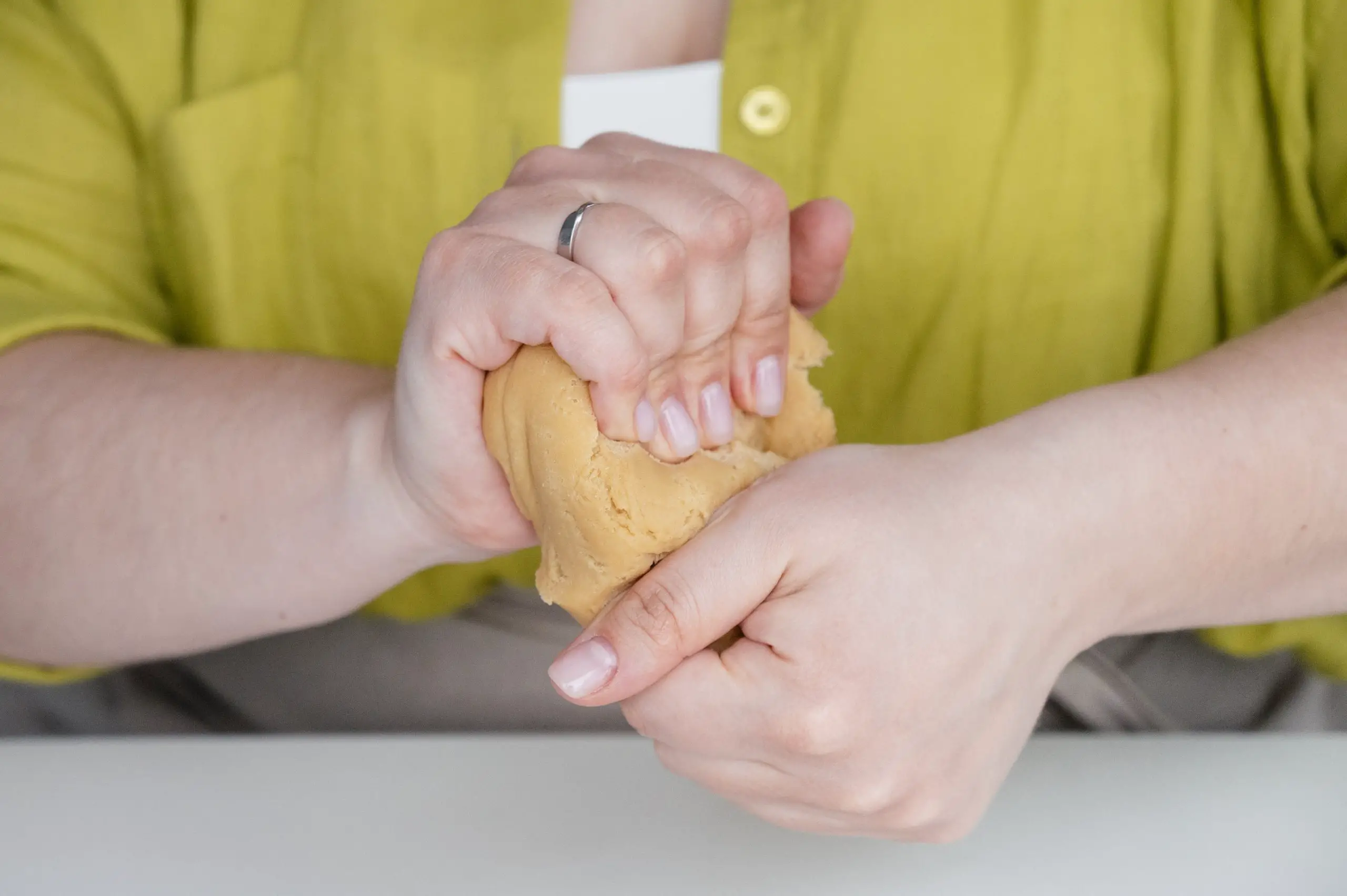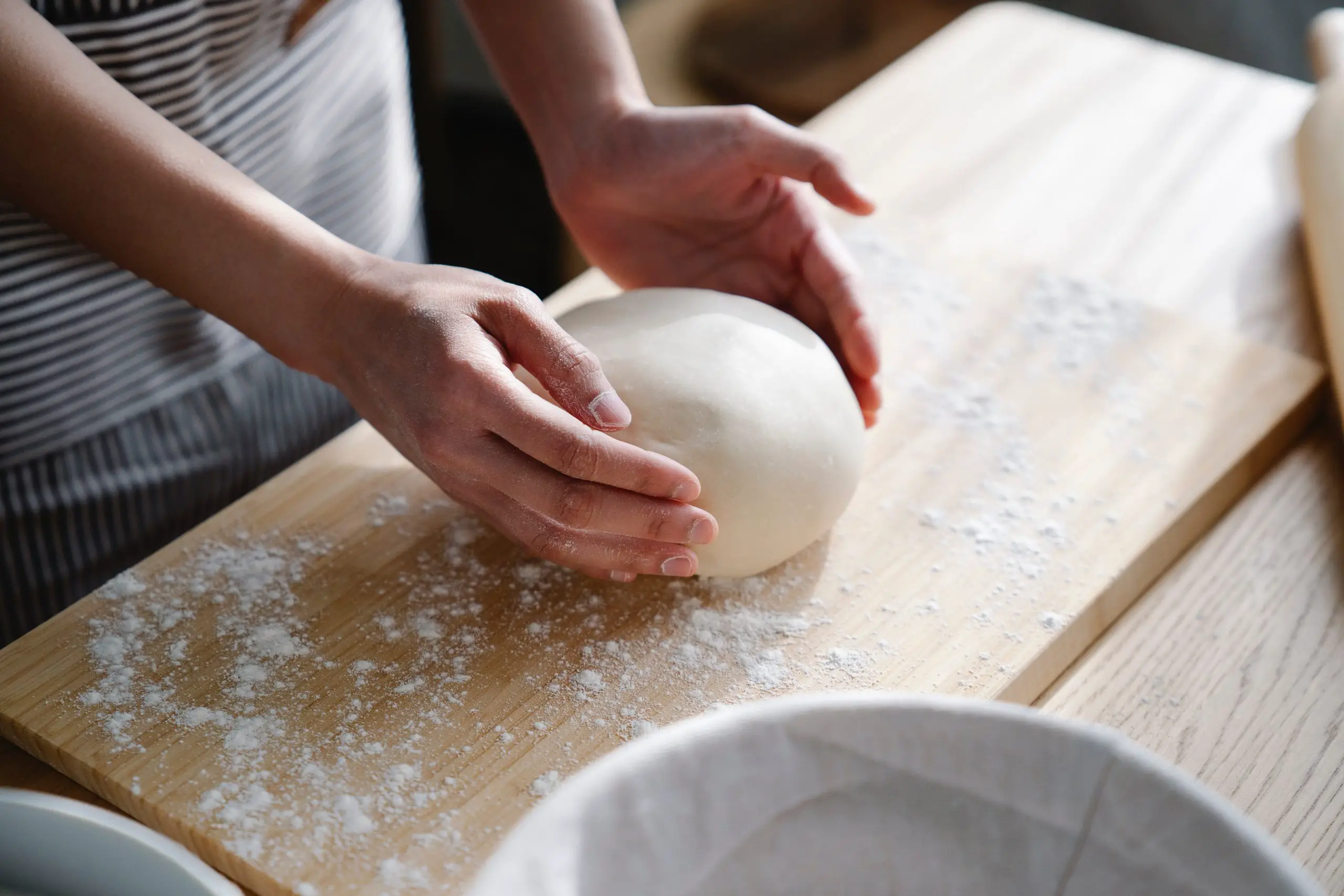The majority of cookie recipes call for chilling cookie dough. Furthermore, having cookie dough in the fridge that is ready to use is always a smart idea. How long, though, can you store this delicacy in the fridge?
In the refrigerator, cookie dough typically keeps for two to four days. The length of time varies depending on whether the dough is homemade or store-bought and whether there are any raw components.

What is Cookie Dough?
Cookie dough is typically supposed to be baked into individual cookies before consumption. However, edible cookie dough is created to be eaten as is and is typically made without eggs to make it safer for human consumption. Raw cookie ingredients are combined to make the cookie dough.
You can make cookie dough at home or pre-made in packs (frozen logs, buckets, etc.). Ice cream and candy are examples of dessert items that contain cookie dough. Additionally, pre-made cookie dough comes in a variety of flavors.
How Long does Cookie Dough Last in the Fridge?
Cookie dough keeps well in the refrigerator for three to five days.
Homemade Cookie Dough
Since preservatives are typically not added to homemade cookie dough, it has a significantly shorter shelf life than store-bought cookie dough.
Homemade cookie dough can be kept in the refrigerator for up to five days if kept in an airtight container.
Store-Bought Cookie Dough
Store-bought Cookie dough is made to be kept for a longer period. The shelf life varies by manufacturer, but keep in mind that we’re discussing store-bought frozen cookie dough.
Most cookie dough has a 12-month shelf life in the freezer and can likely be consumed up to one or two months after its “best by” date.
The moisture from condensation will speed up the deterioration of your cookie dough once it has thawed, though. A week after defrosting, you should bake your cookie.
Why Put Cookie Dough in the Fridge?
Most cookie recipes will instruct you to chill your cookie dough in the refrigerator for at least 30 minutes before baking them, even though you might not want to wait long to bake and consume your cookies even longer at times.
Before baking, chilling your dough will help stiffen it, make it simpler to shape, and help the cookie spread less quickly. Additionally, freezing your dough might enhance the flavor of the finished cookie. Additionally, when the starches have time to absorb the liquid, your cookie will become moister.
Although not as much as freezing them would, storing your cookie dough in the refrigerator will also extend its shelf life, making it last longer than leaving it out on the counter.
How to Freeze Cookie Dough?
Partition the dough: Silpat or parchment paper on a baking sheet. You can put the cookies near together but keep them apart from one another because we are freezing them rather than baking them. As usual, prepare the dough, then distribute the cookies onto the baking sheet.
Freeze the cookies: Freeze the divided cookies on the baking sheet for at least 6 hours or overnight or until they are completely solid.
Once hardened, place the divided cookies in a plastic freezer bag or another container before packaging and freezing. Remove as much air from the bag as possible, label it, and put it in the freezer for up to three months.
Cover the baking sheet with Silpat or parchment paper when baking frozen chunky cookies. Take off as many cookies as you want to bake, then place them on the baking sheet a few inches apart. Bake according to the recipe’s instructions, but allow an extra minute or two for baking.
How to Store Cookie Dough?
Depending on the kind of cookie dough, there are a few different approaches to choose from. The few dozen servings a normal cookie recipe yields at any given moment are rarely desired or necessary by most individuals. What is the best option? Only bake a few handfuls of the cookie dough at a time, and save the rest for later.
Keeping cookie dough balls: Form the dough into balls using a cookie scoop (or a one-tablespoon scoop), then place the balls in a resealable freezer bag and freeze. The dough balls must be wrapped and stored in an airtight container or zip-top freezer bag after being placed on parchment paper in a single layer. This method can freeze chunky cookie dough, such as that used to make drop cookies, oatmeal raisin cookies, cinnamon-dusted snickerdoodles, and chocolate chunk cookies. The cookie dough can also be frozen in six or twelve-batch sizes.
Before storage, mold cookie dough logs into logs and cover them in plastic, especially for delicate biscuits like shortbread. Letting the dough soften in the fridge before baking makes it simpler to slice it into thin cookies.
For the holidays, acquire the skills to make sugar cookies. Roll out the cookie dough for cut-out cookies, like seasonal sugar cookies, and place it in cake pans or, if there is room, on a baking sheet. The dough sheets should be wrapped in waxed or parchment paper, stacked on top of one another, and stored in freezer bags. Let the frozen dough defrost in the fridge before cutting out the appropriate shapes with a cookie cutter. The dough can be fashioned into a rough disc like a pie crust. The frozen disc must defrost in the refrigerator until it is malleable enough to roll.
How to Handle Raw Cookie Dough?
Extreme caution must be taken when baking or cooking with natural products like wheat or eggs. Make sure to bake your cookie batter before eating it.
It would be best if you didn’t consume or taste the raw dough. The dough for making crafts, pizza, bread, pancakes, cookies, and more is included.
Let young toddlers eat or play with raw dough is not advisable. Some artistic endeavors might call for raw dough.
Avoid using raw cookie dough while preparing homemade ice cream. Cookie dough that has been pre-treated is used to make store-bought cookie dough ice cream.
It is best to keep raw eggs and raw flour away from foods that are ready to eat. Since flour is a powder, it disperses easily.
Wash your hands well after handling raw wheat or eggs. You can clean bowls, utensils, equipment, and surfaces using warm, soapy water.
What are the Signs that Indicate Bad Cookie Dough?
Mold and Discoloration
Mold is most likely present if your cookie dough has white or green areas. It would be best to discard the cookie dough because mold can make you unwell. Additionally, avoiding taking any chances and tossing your cookie dough if you observe any odd discoloration is recommended.
If cookie dough becomes ruined, mold will appear and spread across the top. It occurs due to poor storage practices or dampness on the cookie dough. If any green molds appear to be growing on the dough, it is safe to discard the batch and create a new one.
Noise or Taste Wrong
A bad flavor or smell is one of the most reliable signs that food has gone bad. You should toss your cookie dough if it smells rotten, sour, or disgusting. Furthermore, you shouldn’t eat cookies if you outright detect an off-taste or a terrible taste in them.
The Cookie Dough has Hardened and become Crumbly.
If your cookie dough is not kept in a dry, cool place, it may dry out and get hard and crumbly. Your cookies will be too dry at this time to bake properly, and the result will be a disappointing mess.
Is it Harmful to Eat Cookie Dough?
You can occasionally consume cookie dough.
Commercial products like cookie dough, ice cream, and edible cookie dough frequently contain eggs and flour that have been processed to eliminate potentially dangerous germs.
It’s also important to remember that cake batter and cookie dough aren’t the only offenders.
Potentially dangerous viruses are present in bread dough, tortillas, pizza, biscuits, and pancakes.
Using raw cake mix or eggs in milkshakes might also be dangerous.
Zona-Mendola believes that eggnog consumption is also something to be cautious about at this time of year.
Eggnog contains raw eggs, which can contain salmonella, and many recipes do not instruct boiling the concoction before serving.
The following strategies can be useful if you want to eat your cookie dough without thinking about what’s next.
Does Old Cookie Dough have Any Health Risks?
Do you think you could eat sour cookie dough? Although flour doesn’t seem like raw food, it is because it hasn’t been treated to remove bacteria like E. coli that cause food illness (E. coli). These harmful germs can contaminate the flour in the mill and the grain in the field. You should avoid consuming cookie dough that has passed its expiration date out of caution, but if stored correctly, you can consume it up to one to two months after its best-by date.
The same reason why my mother forbade me from consuming too many eggs. Eggs are one of the main ingredients in cookie dough and help keep the cookies from spreading.
Conclusion
Cookie dough is a popular type of store-bought cookie dough. The dough can last in the refrigerator or freezer for a few weeks, but the shelf life of the dough will vary depending on how long it is kept. The dough will start to oxidize and lose its original flavor. It should not be left out for too long as it may develop mold.
It is also important to remember that the dough may contain a best-by date. However, this does not mean that the dough is unsafe to eat. Instead, it simply indicates that the best quality will be attained. If you are uncertain about the expiration date of a particular brand, check with the manufacturer.

